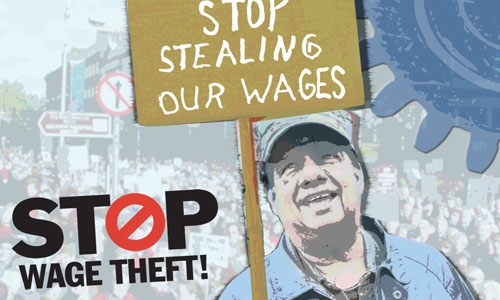The Plain Dealer, Solution like InkStop's unusual in wage disputes
pdf article / full article from cleveland.com
By Janet Cho
March 30, 2010, 7:05PM
CLEVELAND, Ohio -- Wage disputes don't often turn out as amicably as they did in Monday's InkStop Inc. settlement, where 15 directors dug into their own pockets to repay workers $660,000 in back pay. Workers more often end up with nothing.
"It is highly unusual for individual defendants to pay part of a wage and hour settlement," said Barry Freeman, a partner with Cleveland employment and labor firm Littler Mendelson P.C.
Freeman, who is not involved in the InkStop lawsuits, was not the only person in the Northeast Ohio legal community who found the outcome exceptional.
"I was somewhat surprised to see contributions from outside investors like (former Cincinnati Bengals quarterback) Boomer Esiason," said Mark Katz, vice chairman of the labor and employment group at Ulmer & Berne LLP, referring to one of the InkStop directors.
Outside directors who didn't oversee day-to-day operations of the now-bankrupt retailer aren't ordinarily asked to contribute toward a settlement, Katz said.
In InkStop's case, however, all 15 directors not only paid into the fund -- including founder and Chief Executive Dirk Kettlewell -- they each had something to gain by participating.
That's because by taking the payments, which will amount to about 82 percent of what they are owed in salary and overtime, the 629 former workers are agreeing to drop all their claims against the directors and executives in two active lawsuits.
By the time InkStop shut down Oct. 1, it owed nearly $48.3 million to more than 1,000 creditors, including $1.1 million in wages and benefits to its workers, according to its Chapter 7 bankruptcy filing.
Attorneys for the directors could not be reached on Tuesday.
Linda Mastellone, an assistant store manager for the InkStop in Newtown, Pa., said because she hadn't expected to get repaid, the settlement payout "is like a gift from the bankruptcy gods."
"Still, it's about more than the money," she said. "So many of us are still unemployed. Still struggling. Someone lost his car because he couldn't make the payments. . . . Each one is suffering in their own way. They each deserve more."
Anthony Lazzaro of The Lazzaro Law Firm LLC, who represented InkStop workers, said that "in this case, we were pretty confident that the board of directors had funds, but it happens all the time that small businesses go under and the owners just don't have the funds" to pay workers.
Small businesses and restaurants sometimes close without warning, leaving workers without jobs or lost wages.
Katz, who used to work as a trial attorney for the Labor Department prosecuting violations of the Fair Labor Standards Act, recalls how surprised some restaurant owners were that they could be held personally liable when their businesses failed.
Monday's proposed settlement, which still must be approved by U.S. District Court Solomon Oliver Jr., gives something to both sides and lets everyone move on, said Thomas Barnard, a partner with Ogletree, Deakins, Nash, Smoak & Stewart, P.C. who specializes in employment law.
"This is the type of thing that could be tied up in litigation for years," and rack up hundreds of thousands in legal fees, he said.
"From the plaintiffs' lawyers' perspective, if they can get 82 percent now," that beats holding out for more and possibly coming up empty years from now.
While some workers were disappointed that they won't get 100 percent of what they're owed, Katz said that would have unrealistic under an agreement in which both sides have to give a little bit to the other.
"From the point of the directors, the cost of litigation for them going forward," plus the prospect of a lengthy and potentially damaging outcome makes it easier and more attractive to pay up front, Barnard said.
Under federal labor laws, the courts could have found both directors and officers liable for decisions about employee compensation, said attorney Jason Bristol of Cohen Rosenthal & Kramer LLP, who with Lazzaro teaches classes at Cleveland-Marshall College of Law.
Barnard added: "And if it ever went to a jury, the sympathy isn't going to be on the side of the company. It never is."

